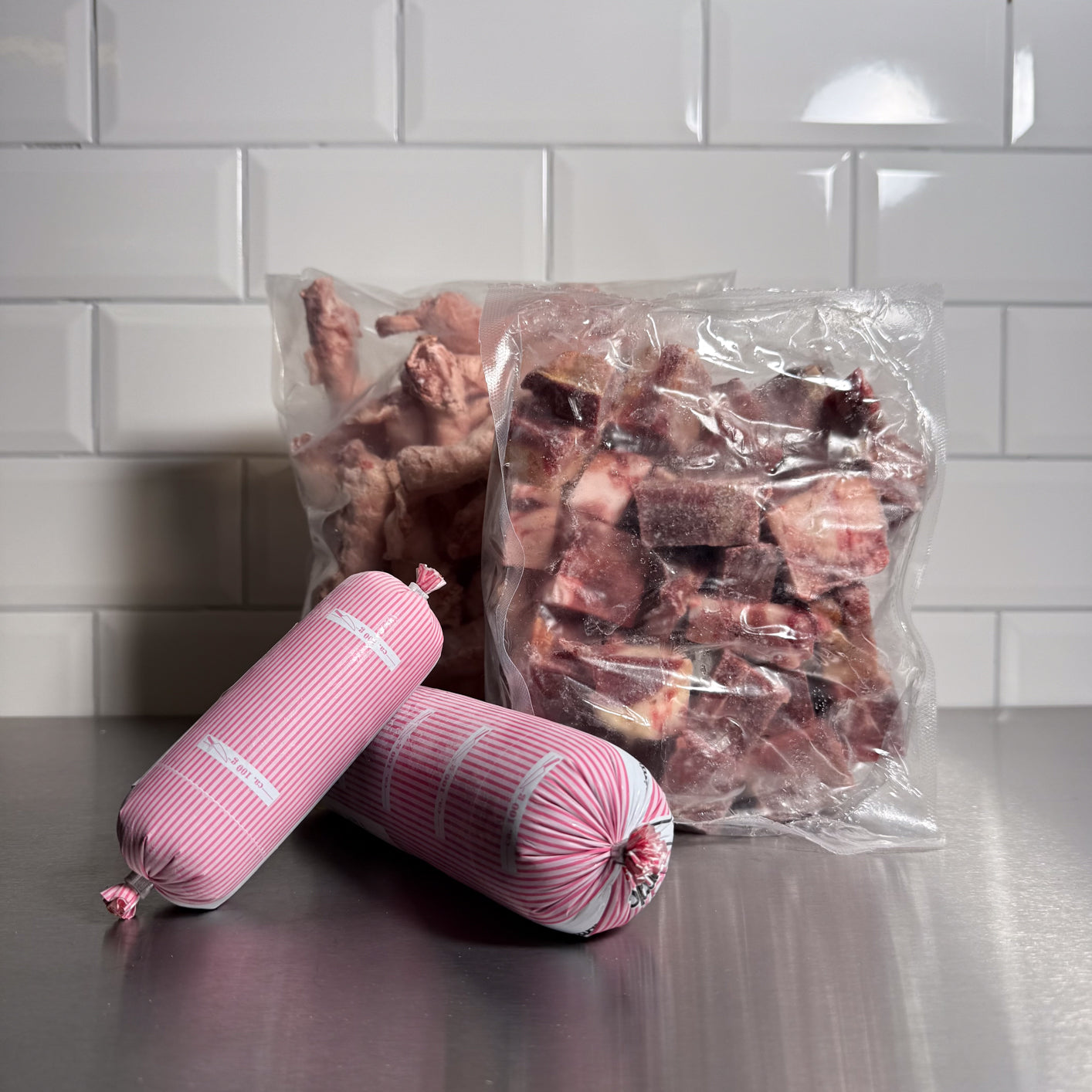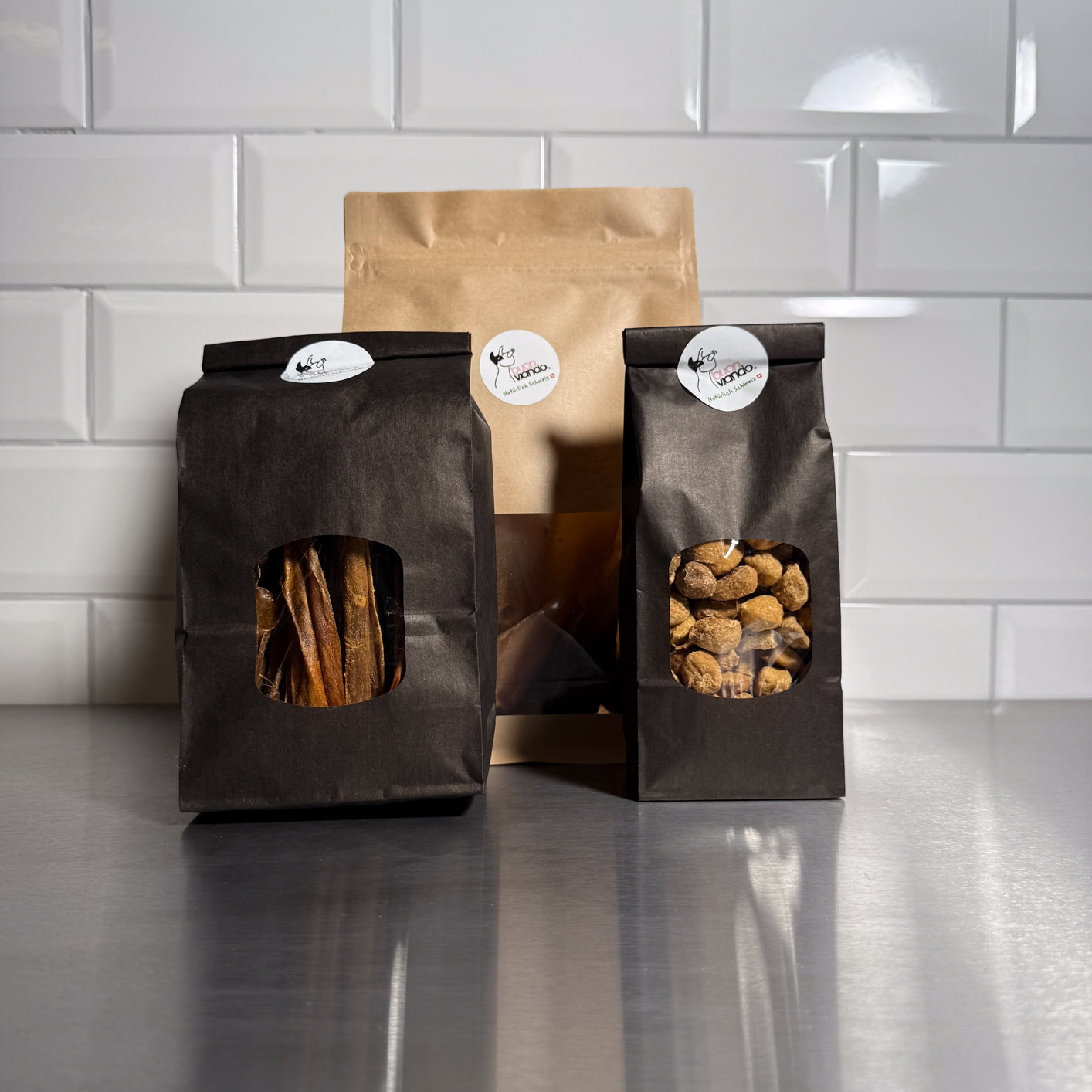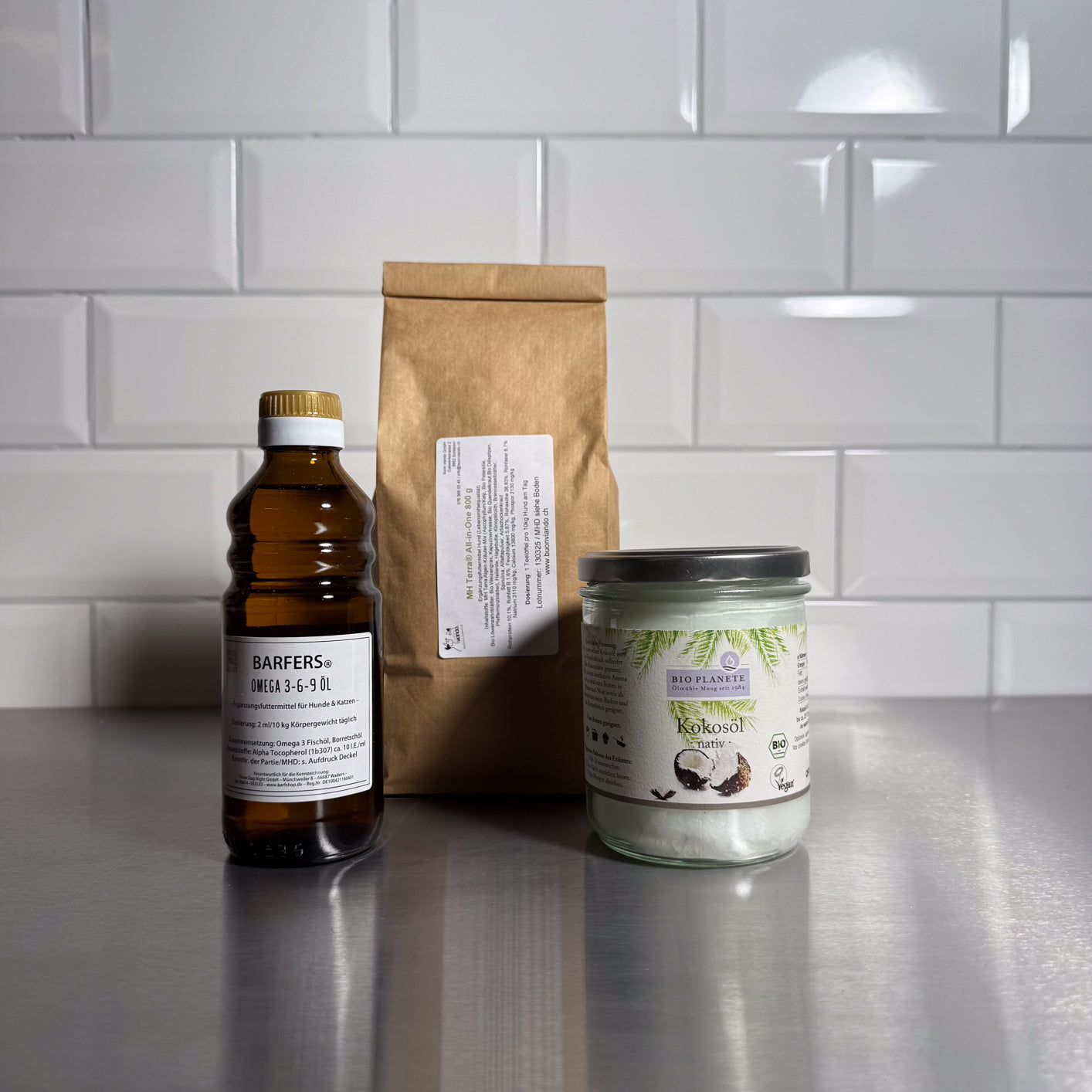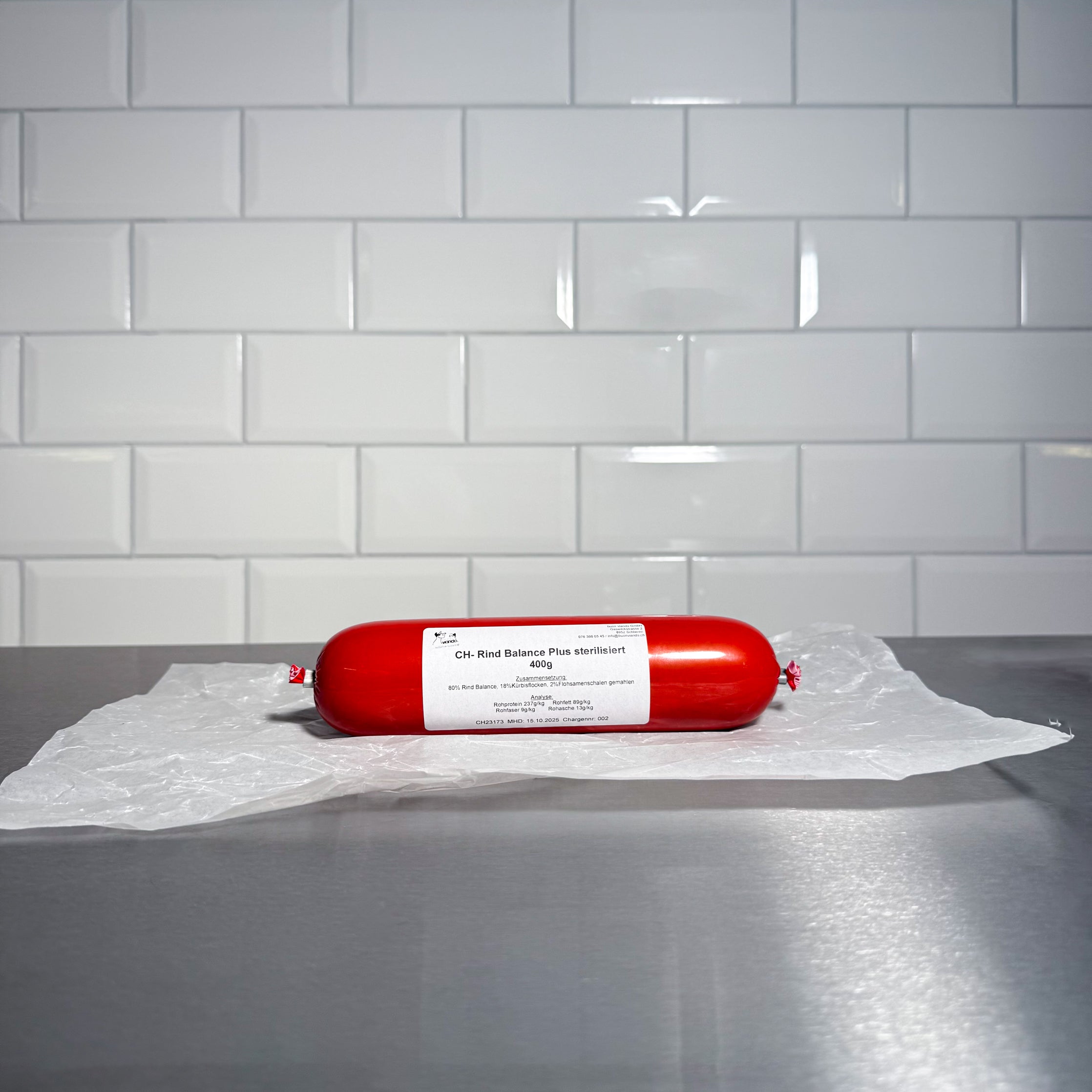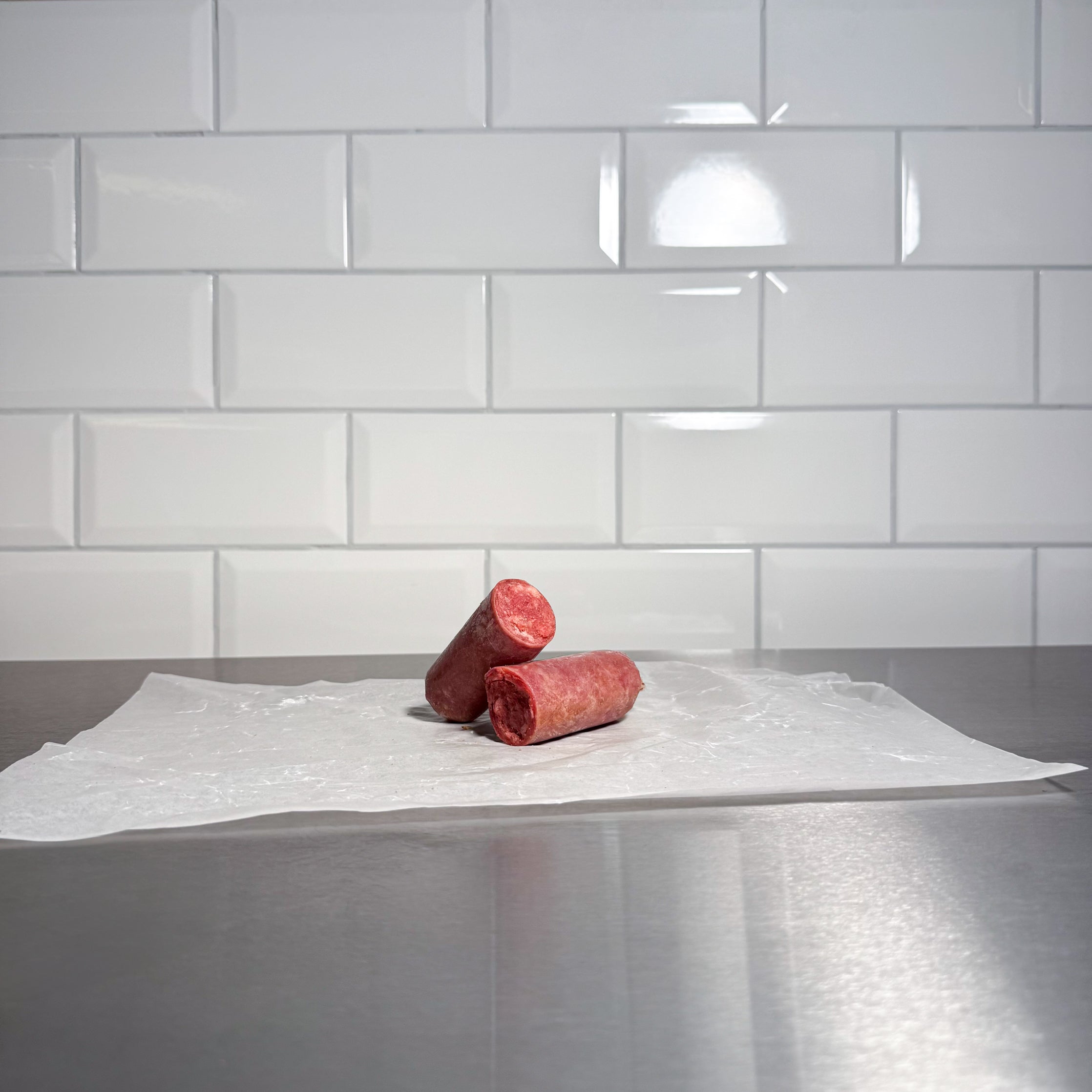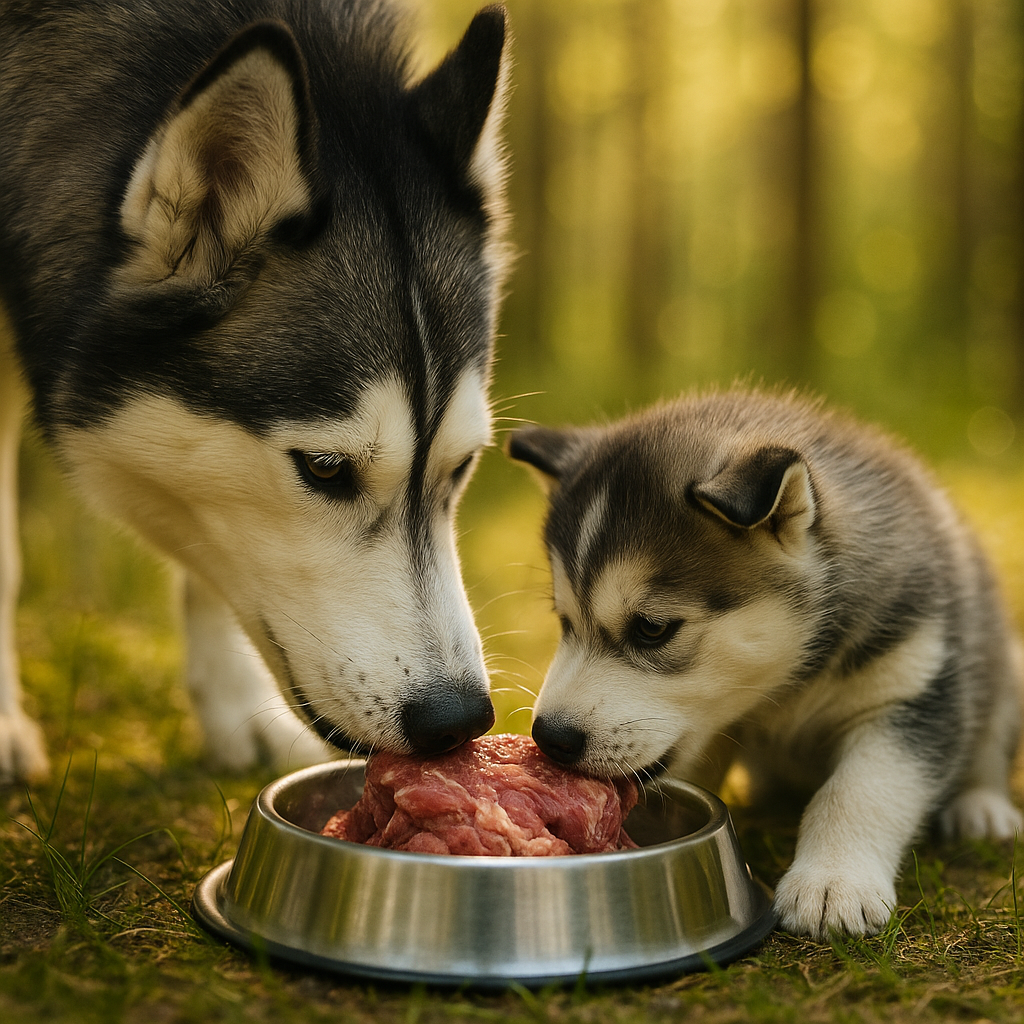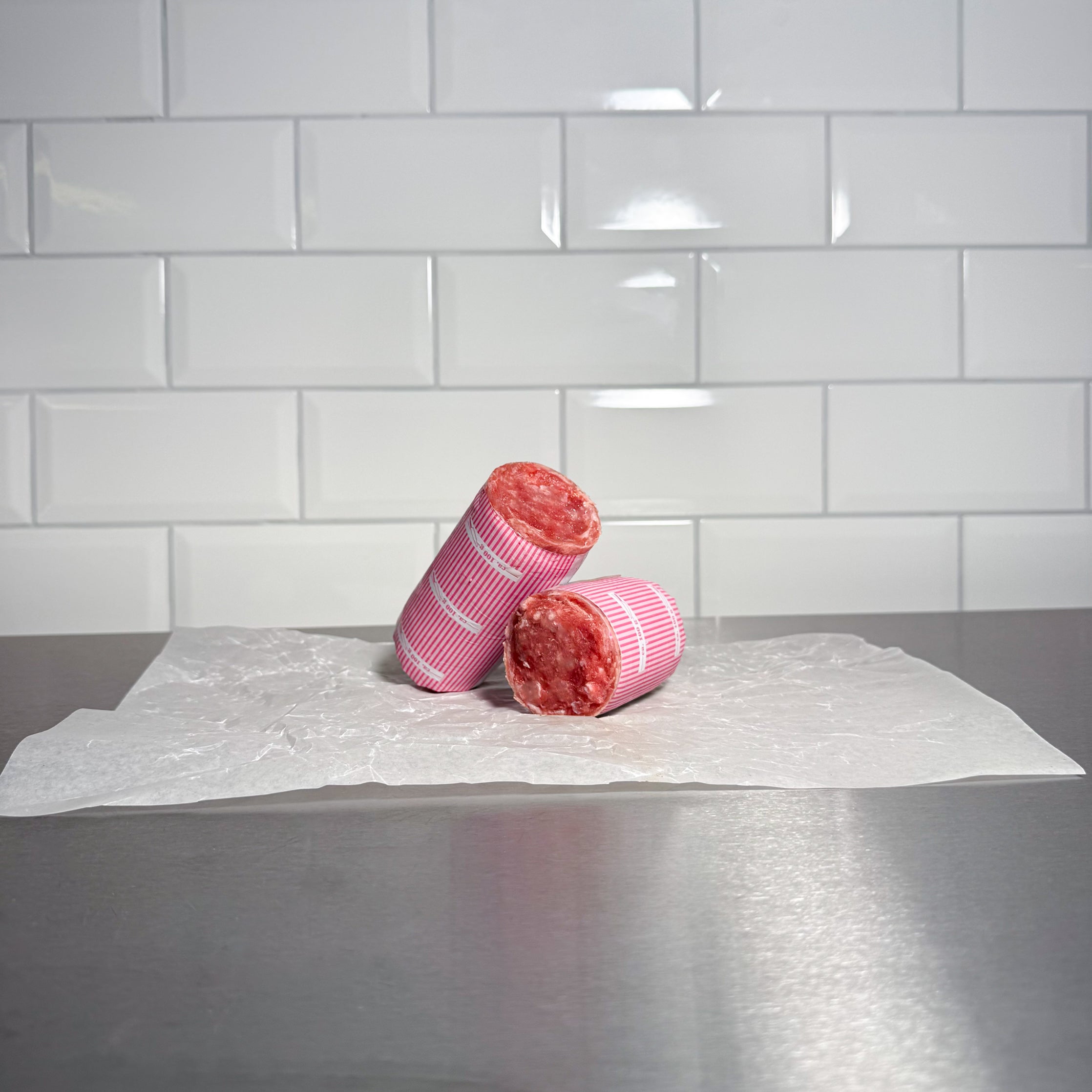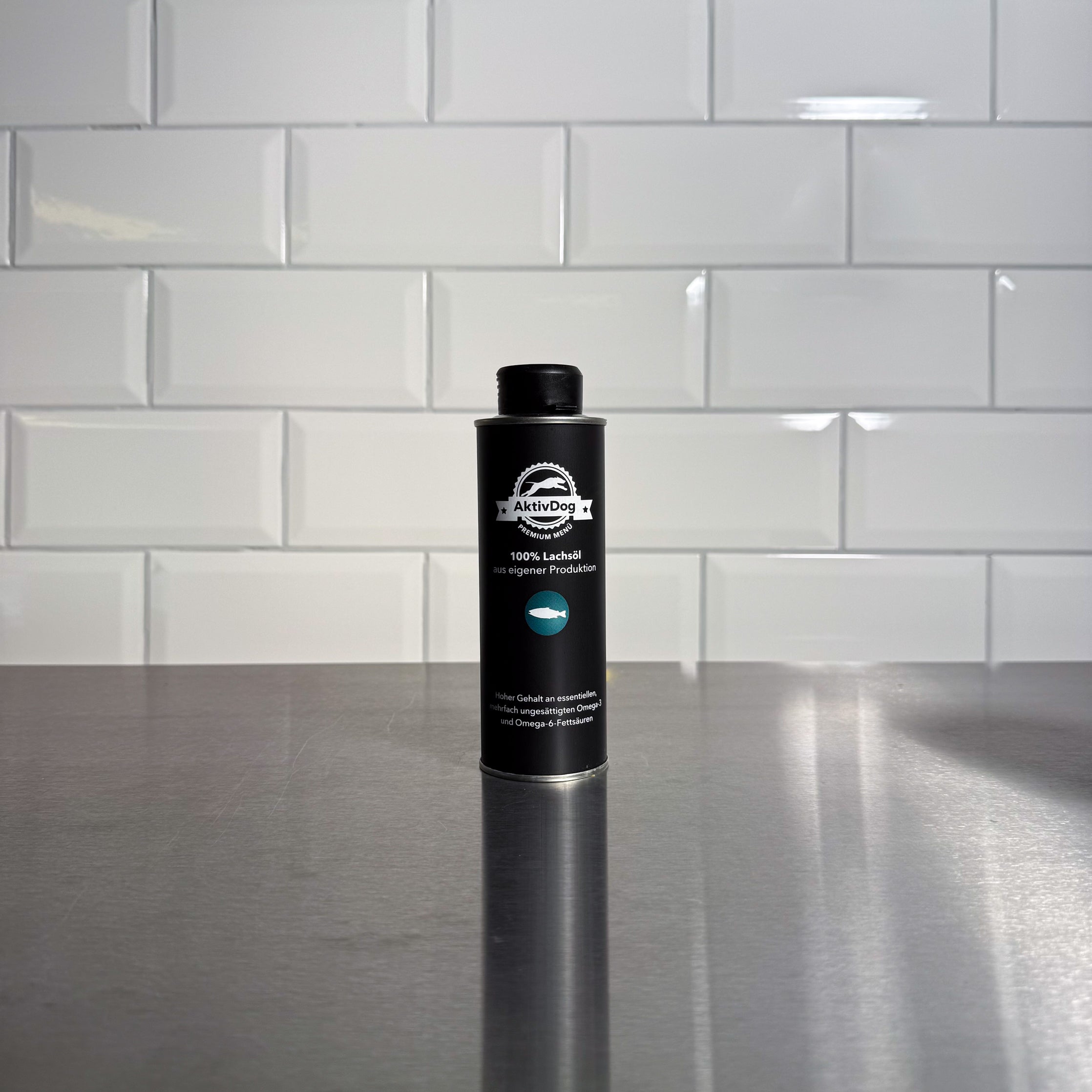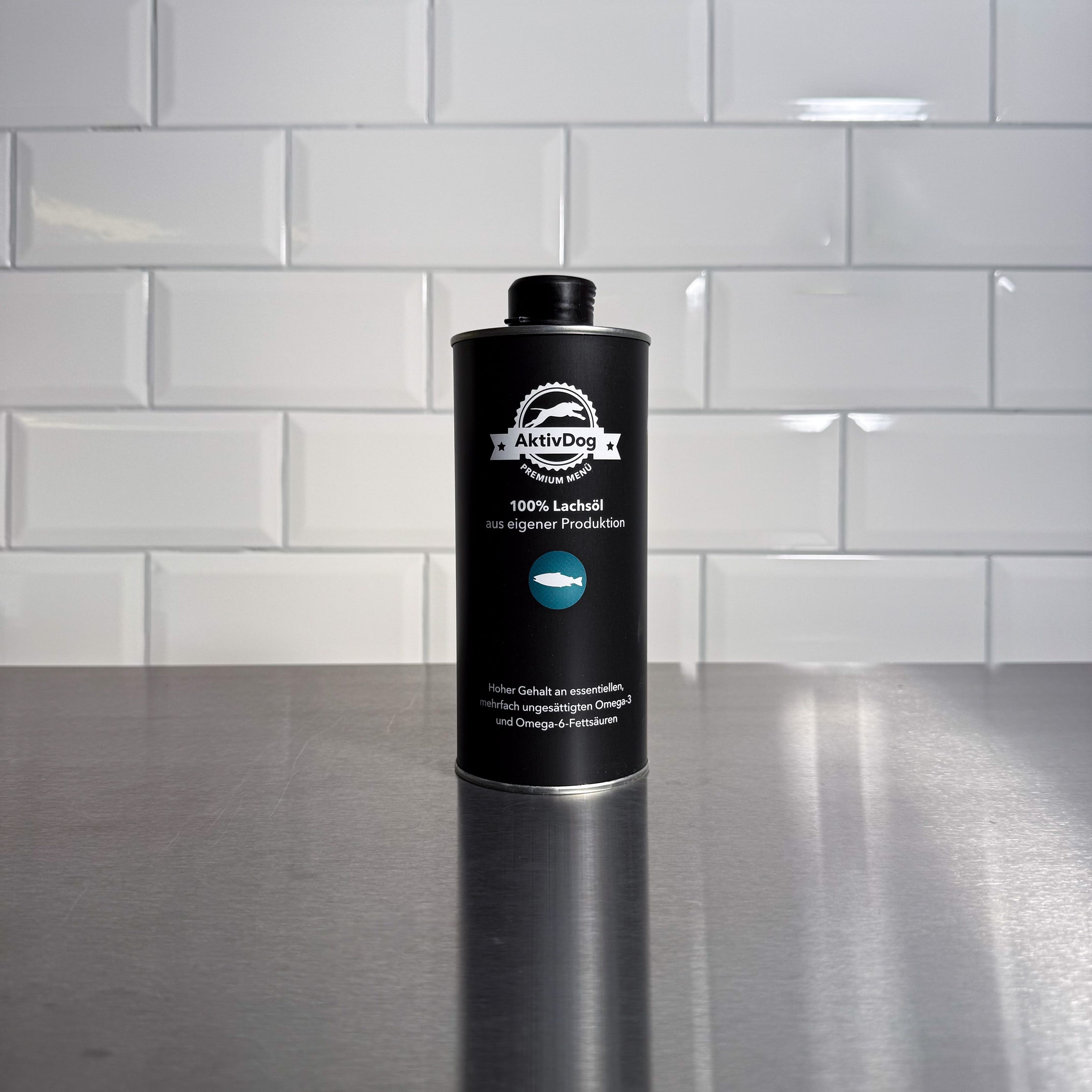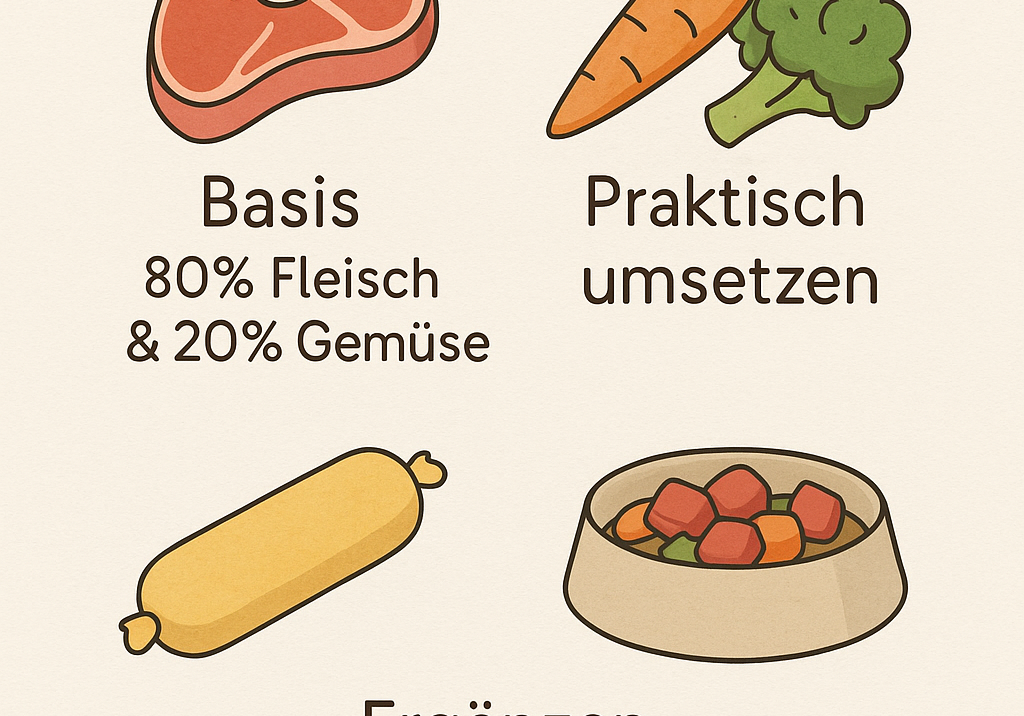The decision to bring a puppy into your home raises many questions – one of the most important concerns proper nutrition. A species-appropriate, balanced diet from the very beginning is crucial for your dog's healthy growth. BARF (biologically appropriate raw feeding) offers a natural and perfect supply of nutrients based on the original diet of wolves.
Why should a puppy be fed BARF right away?
The ideal start in life begins with mother's milk. It provides essential nutrients, strengthens the immune system, and supports a healthy intestinal flora. Therefore, a puppy should ideally be breastfed for at least 7-9 weeks to avoid digestive problems and weakened immune systems.
Solid food can be introduced from the 4th week (or later). BARF is the best choice: Fresh, unprocessed ingredients provide your puppy with all the necessary nutrients. Muscle meat, pureed vegetables, and later also raw, meaty bones/carcasses and offal promote healthy growth and stable digestion.
Benefits of BARF for Puppies:
- Healthy Growth: Due to its natural composition, BARF provides all important nutrients in their best form, supports healthy growth, and reduces the risk of joint and bone problems.
- Strong Bones and Joints: A balanced ratio of calcium and phosphorus is important for bone development. Fresh bones and natural supplements ensure your puppy receives sufficient minerals. Adequate sunlight is crucial for vitamin D synthesis, which in turn plays an important role in bone growth.
- Better Digestion: Puppies have sensitive stomachs, and processed foods can often lead to digestive problems. BARF helps stabilize digestion and reduces bloating and diarrhea.
- Strengthening the Immune System: Unprocessed foods provide vitamins and antioxidants that strengthen the puppy's immune system and make it more resistant to disease.
- Controlled growth: A common mistake with commercially produced puppy food is excessive energy intake, which can lead to rapid growth and later joint problems. With BARF, growth can be healthy and controlled.
The ideal introduction to BARF for puppies
If your puppy has been fed a ready-made diet, the transition should be gradual. Start with easily digestible, ground muscle meat (e.g., chicken or turkey) and supplement with pureed vegetables such as carrots or zucchini. Pay particular attention to a balanced calcium-phosphorus ratio by gradually adding raw, meaty bones (cooked bones are dangerous as they can splinter!).
Introducing healthy oils such as salmon oil provides essential omega-3 fatty acids, while Ascophyllum nodosum (a natural source of iodine) is a valuable supplement. A slow introduction of different protein sources is important to avoid digestive problems and gently accustom the puppy to raw feeding.
Natural probiotics such as green tripe or fermented vegetables help stabilize the intestinal flora and promote good nutrient absorption and a strong immune system.
Important Nutrients for Puppy Growth
In addition to calcium and phosphorus, other nutrients also play a crucial role:
- Vitamin D: Supports the absorption of calcium and phosphorus and promotes bone health.
- Vitamin A: Important support for skin, eyes, and the immune system.
- Omega-3 fatty acids: Promote brain development and healthy skin.
- High-quality proteins: Promote muscle growth and cell regeneration.
BARF – The Natural Foundation for a Healthy Dog Life
Whether a puppy or an adult dog, switching to BARF is always an excellent choice for your dog's health. A natural diet supports the immune system, prevents lifestyle diseases, and promotes a shiny coat and general vitality.
For puppies, BARF provides an ideal start in life, but adult dogs also benefit from this natural feeding method. Anyone who chooses BARF lays the foundation for a healthy and happy future for their dog – no matter what age.

